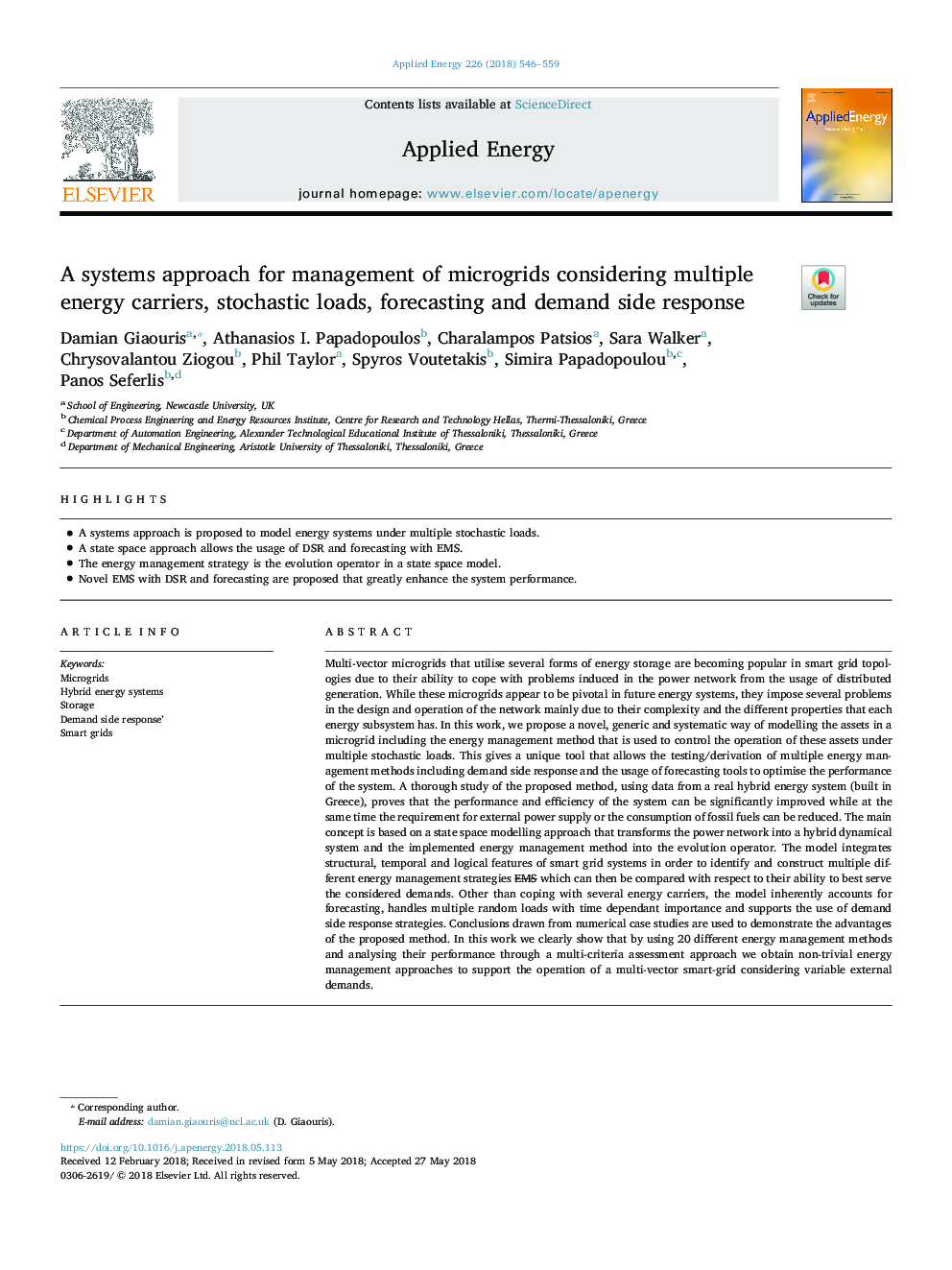| کد مقاله | کد نشریه | سال انتشار | مقاله انگلیسی | نسخه تمام متن |
|---|---|---|---|---|
| 6679862 | 1428064 | 2018 | 14 صفحه PDF | دانلود رایگان |
عنوان انگلیسی مقاله ISI
A systems approach for management of microgrids considering multiple energy carriers, stochastic loads, forecasting and demand side response
ترجمه فارسی عنوان
رویکرد سیستم برای مدیریت میکروگرید ها با توجه به چندین حامل انرژی، بارهای تصادفی، پیش بینی و پاسخ تقاضا
دانلود مقاله + سفارش ترجمه
دانلود مقاله ISI انگلیسی
رایگان برای ایرانیان
کلمات کلیدی
موضوعات مرتبط
مهندسی و علوم پایه
مهندسی انرژی
مهندسی انرژی و فناوری های برق
چکیده انگلیسی
Multi-vector microgrids that utilise several forms of energy storage are becoming popular in smart grid topologies due to their ability to cope with problems induced in the power network from the usage of distributed generation. While these microgrids appear to be pivotal in future energy systems, they impose several problems in the design and operation of the network mainly due to their complexity and the different properties that each energy subsystem has. In this work, we propose a novel, generic and systematic way of modelling the assets in a microgrid including the energy management method that is used to control the operation of these assets under multiple stochastic loads. This gives a unique tool that allows the testing/derivation of multiple energy management methods including demand side response and the usage of forecasting tools to optimise the performance of the system. A thorough study of the proposed method, using data from a real hybrid energy system (built in Greece), proves that the performance and efficiency of the system can be significantly improved while at the same time the requirement for external power supply or the consumption of fossil fuels can be reduced. The main concept is based on a state space modelling approach that transforms the power network into a hybrid dynamical system and the implemented energy management method into the evolution operator. The model integrates structural, temporal and logical features of smart grid systems in order to identify and construct multiple different energy management strategies EMS which can then be compared with respect to their ability to best serve the considered demands. Other than coping with several energy carriers, the model inherently accounts for forecasting, handles multiple random loads with time dependant importance and supports the use of demand side response strategies. Conclusions drawn from numerical case studies are used to demonstrate the advantages of the proposed method. In this work we clearly show that by using 20 different energy management methods and analysing their performance through a multi-criteria assessment approach we obtain non-trivial energy management approaches to support the operation of a multi-vector smart-grid considering variable external demands.
ناشر
Database: Elsevier - ScienceDirect (ساینس دایرکت)
Journal: Applied Energy - Volume 226, 15 September 2018, Pages 546-559
Journal: Applied Energy - Volume 226, 15 September 2018, Pages 546-559
نویسندگان
Damian Giaouris, Athanasios I. Papadopoulos, Charalampos Patsios, Sara Walker, Chrysovalantou Ziogou, Phil Taylor, Spyros Voutetakis, Simira Papadopoulou, Panos Seferlis,
